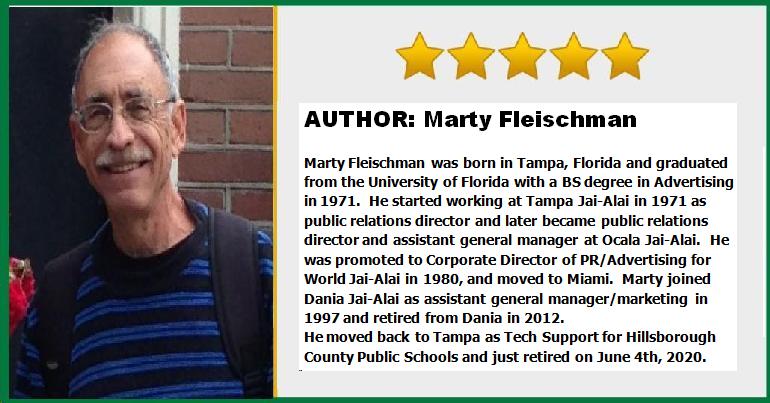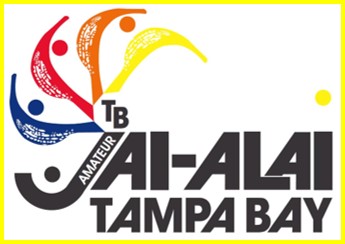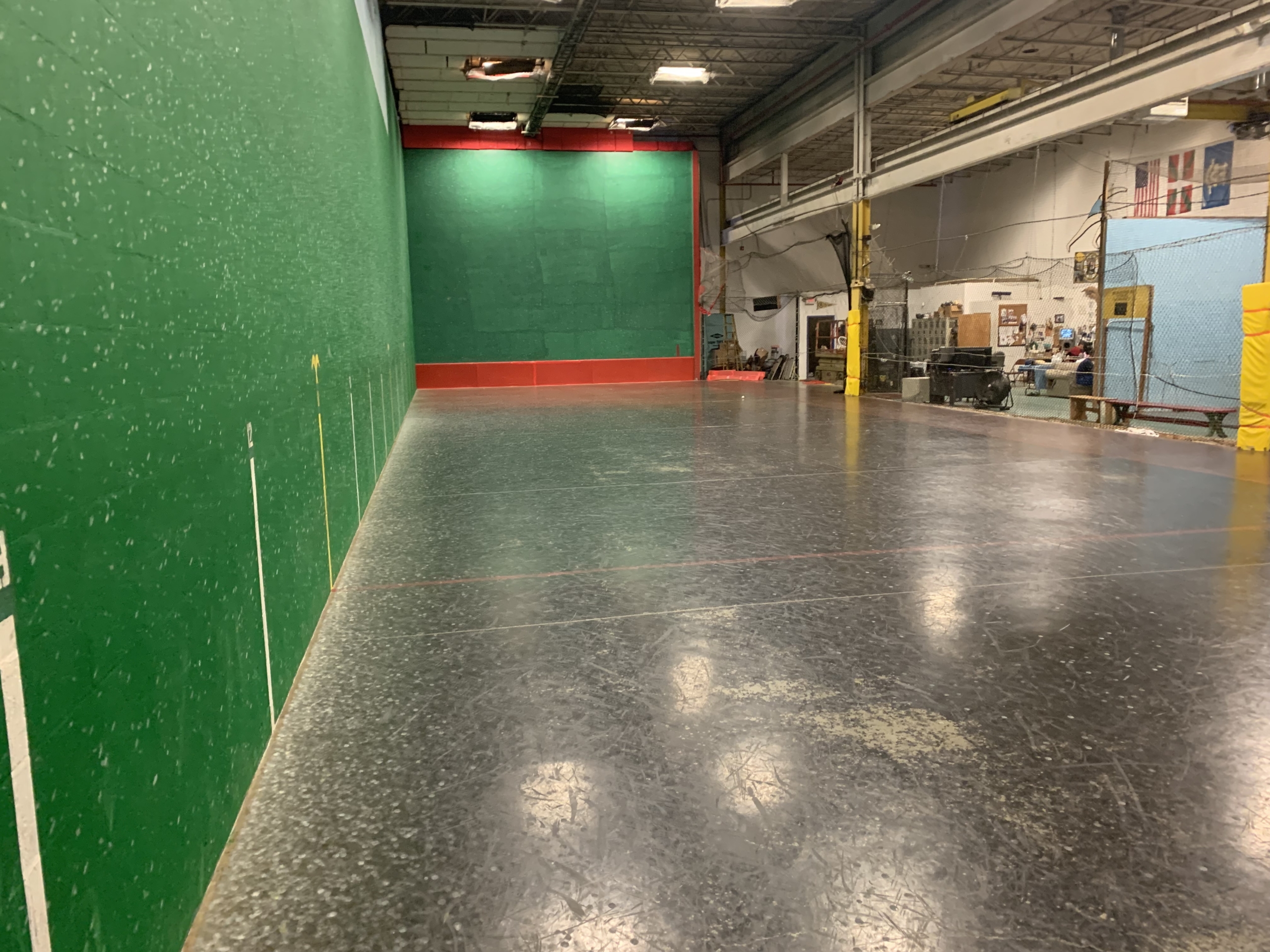“The Beginning of the End – Part 3”
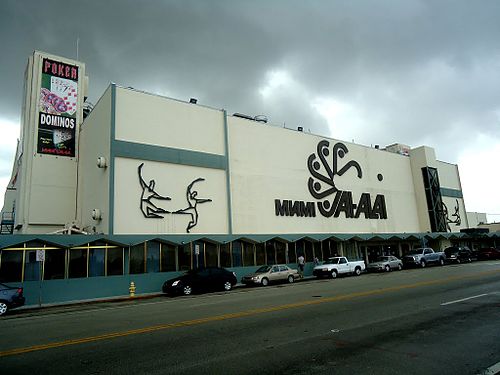
Kate Smith’s rendition of God Bless America became one of this country’s patriotic rally tunes in the run up to World War II. It soon became a favorite played at many sporting events even today. However, in the summer of 1988, this song was not on the Miami Jai-Alai striking players’ Top 5 list.
The players had set up picket lines at both corners and directly across the street from the Miami fronton. Carrying signs and yelling insults to entering fans was their way of trying to disrupt the business. Their constant chants and loud voices could be heard in the executive offices of World Jai-Alai.
Dan Licciardi, Miami’s Assistant GM, believed in their constitutional right to peacefully assemble. But, their insults to the innocent customers and loud shouting was too much.
He grabbed an amplifier and high powered speaker, placed it in the window upstairs in Eileen’s (Donovan’s secretary) office, and blasted Smith’s God Bless America on a repeating loop. The players were shocked and confused. Rico and Donovan were equally amused.
Licciardi’s innocent prank was nothing compared to what was actually taking place on a daily basis at our facility and the other frontons from Florida to Connecticut.
“I walked the picket line every day, talked to the players,” recounted Licciardi. “I knew them well. The insults to our fans were appalling. The vitriol and violence coming from our players… it was shocking.”
Dan recalls how the striking players threw bent nails in the streets every day. He said more than 20 cars would get flat tires nightly from this. Over 800 vehicles would need repair. Things got worse.
“Players would use small lead weights to break car windshields, pour paint remover on cars, and yell things at customers I am embarrassed to repeat,” he said. The non-striking players and “replacement players” (scabs they would be called) got the brunt of the attacks.
Licciardi and Player Personnel Director Frank Duffin would provide escort and security each night as the players exited the fronton. “We would circle the wagons in the valet lot,” Dan recalled. “We would drive toward one exit and the strikers would chase us. Then, we would make a reverse turn and go out the back. Frank and I would escort them home for their protection. Sometimes I would sit outside the house of one of their targets all night into the early morning.”
Yes, there was violence. We had bomb threats, many player confrontations, even fights. One of our star players, Asis, went outside his home only to find his tires on fire. Some players were arrested. Threats and intimidation come with the territory. But, this transcended normal U.S. work stoppages.
The Basques are a tightly knit group, an ancient agrarian culture. The strike permeated the Basque villages in Spain, home of most of the players. Word quickly got out in these small towns about those Basque players that crossed the picket lines. Lists of names were posted in the small bars and cafes. Families were split. Lifelong friends were shunned. Even to this day, some players do not speak to each other. This situation would further hinder players from crossing the picket line, thus delaying any quick resolution to the conflict.
Some say it was worse in Connecticut, where the seeds of the strike were sown. Riki Lasa, a Hartford player, became president of IJAPA (the player’s union). His father, Ricardo Sotil, was apparently advising him. Both resided in Connecticut.
“The picket line violence… I will never get over that,” said Richard Berenson, son of the legendary Buddy Berenson, owner of Hartford Jai-Alai and past president of World Jai-Alai. “The disrespect of the players for the fans that cheered them on each night, it was unbelievable.”
Richard still remembers “The Bar of Death” as it was called. “They would place a long bar with spikes sticking up. A customer would run over it entering or exiting our fronton and blow the tires. We spent a lot of money on tire repairs each night. Fans finally decided it wasn’t worth it to come.”
Connecticut being a union state did not help the situation for management. Often, police and state officials turned a blind eye to the insults and violence of the picketers. Hartford and Bridgeport were forced to shut down for a few weeks. The State’s reason: it was too dangerous for the fans. Finally, the police agreed to offer more protection and they reopened.
“These guys were stubborn. It was apparent to me they would not give in,” Richard said. “I knew them personally. I knew they wanted to talk to me. I really felt I could have helped solve the issues, maybe help end the strike. But, I was told by the lawyers to stay out of it.”
It was easy to tell Richard still carried scars from the entire ordeal. Many of us did. “I really wanted to see what they were thinking, see if I could help in the resolution. I regret to this day that I couldn’t,” he said sadly.
So, the strike dragged on. Through the sweltering heat of the summer of 1988, the players continued to picket. Our business was cut in half during the summer season. The fronton owners continued their resolve to fight unionization thinking the players could not hold out much longer.
But, these were competitive athletes. They played the world’s fastest and most dangerous games. And, they were Basques! They stood up to Hitler’s bombing of Guernica. They outlasted Spanish dictator Francisco Franco. The Jai-Alai owners were in for a big surprise!
